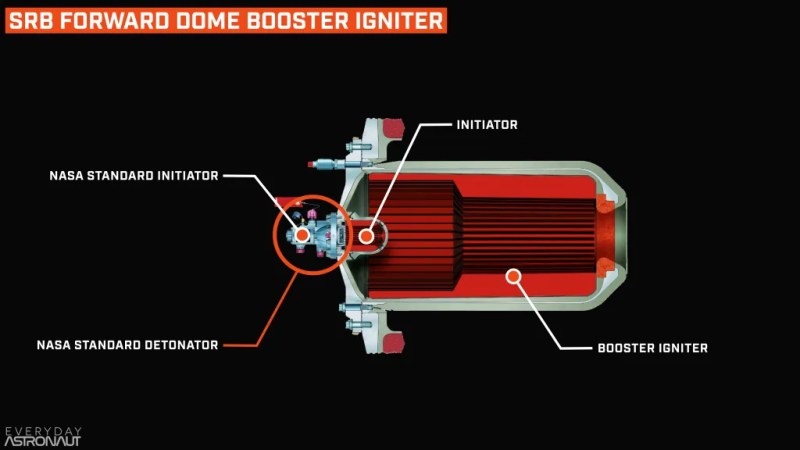
Rockets are conceptually rather simple: you put the pointy bit upwards and make sure that the bit that will go flamey points downwards before starting the engine(s). Yet how to start each rocket engine type in a way that’s both safe and effective? Unlike in the Wile E. Coyote cartoons, real-life rocket engines do not have a fuse you light up before dashing off to a safe distance. Rather they use increasingly more complicated methods, which depend on the engine type and fuels used. In a recent article written by [Trevor Sesnic] with accompanying video featuring everyone’s favorite Everyday Astronaut [Tim Dodd], we’re taken through the intricacies of how flamey ends are made.
The least complicated are probably solid rockets, which come with all of the fuel and oxidizer stacked and ready for the ignition source. While a small hobby rocket would happily ignite from just a spark, by the time you have an SRB the size of those strapped to a Shuttle’s main tank or to the SLS stack, you need something a lot beefier. On the STS & SLS SRBs this starts with the NASA Standard Detonator, which ignites a pyrotechnic charge that ignites propellent down the length of the SRB and ultimately starts it.
For liquid rocket engines things rapidly get more complicated, with hypergolic propellants such as hydrazine being the easiest and self-igniting. From there it escalates into cryogenic liquids, the need to precondition the engine, bootstrapping turbo pumps, and the application of the ignition source as fuel is being mixed and floods the combustion chamber. For the SpaceX Merlin engine, this ignition source is a pyrophoric chemical called TEA-TEB which ignites on contact with oxygen, while other engines use spark igniters, pyrotechnics, and so on.
Most exciting is the part where the ignition has to take place in space, which is something that is a well-known issue for new rockets and their second and third stage engines, and is an essential part of reusable rockets that are supposed to gently touch down using propulsive landing. All in all an excellent crash course on a topic that is often neglected.
0 Commentaires